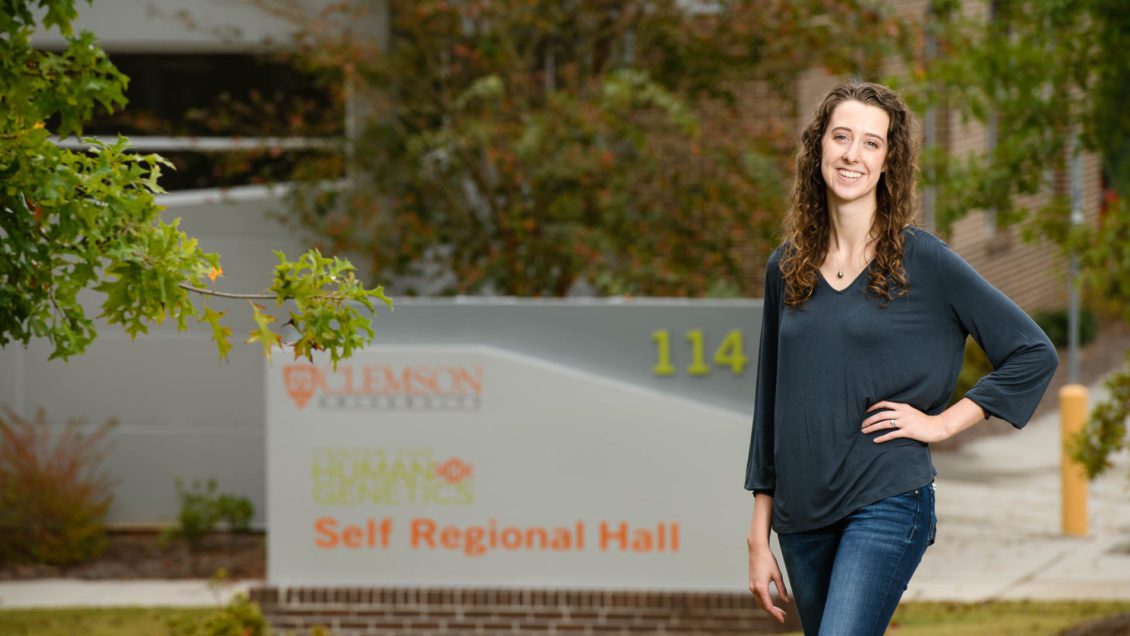Clemson University Ph.D. candidate in genetics Rebecca MacPherson uses the common fruit fly Drosophila melanogaster to better understand how genetic modifiers contribute to the severity and presentation of diseases in humans.
Genetic modifiers are genes that can enhance or suppress the severity of a disease condition without being the direct cause of the disease. MacPherson’s research could shed light on how specific mutations cause specific diseases and how mutant genes function within the human body, and could lead researchers to a fuller understanding of the complex roots of many congenital diseases.
MacPherson recently received a Ruth L. Kirschstein National Research Service Award Individual Predoctoral Fellowship (Parent F31) grant for her project titled “Drosophila Models of Rare Mendelian Disorders of Chromatin Modification.” The three-year grant will provide $46,036 annually. The Eunice Kennedy Shriver National Institute of Child Health and Human Development awarded the grant.
MacPherson’s research at the Clemson Center for Human Genetics deals specifically with the causes of Coffin-Siris syndrome, a congenital disorder that causes varying degrees of intellectual disability, digit abnormalities and neuromuscular issues, and for which there is currently no treatment.

Her interest in CSS was piqued when she learned there had been little research into the syndrome.
“The [Greenwood Genetic Center] suggested that this would be a good thing to work on, and that information was needed about this disorder, and we took it from there,” MacPherson explained.
Her research relies on the tiny Drosophila, an insect commonly used in genetic research, to help unlock the complexities of CSS.
“Although mutations in a single gene may be directly responsible for causing a disease, there may be other genes in the body that influence the severity and presentation of the disease,” she said. “These genetic modifiers are hard to find in humans, but can be more easily identified in the fruit fly.”
Besides helping find treatments to improve the quality of life for those who have CSS, MacPherson’s research could impact the study of other congenital illnesses.
“As additional evidence—some of which may come from my research—accumulates that single-gene disorders are more genetically complex than previously thought, medical research should shift away from the idea that single-gene disorders are simple and toward looking for the underlying complexities of single-gene disorders that may transform diagnosis and treatment for many more patients, and their families,” MacPherson said.
Research reported in this publication was supported by the Eunice Kennedy Shriver National Institute of Child Health & Human Development of the National Institutes of Health under award number F31HD106719. The content is solely the responsibility of the authors and does not necessarily represent the official views of the National Institutes of Health.
The Center for Human Genetics is part of Clemson University’s College of Science and is housed in Self Regional Hall, a state-of-the-art research facility located in Greenwood, South Carolina. Research in the center focuses on genomic, computational and comparative genetic approaches to gain insights in genetic and environmental risk factors for human diseases.
Get in touch and we will connect you with the author or another expert.
Or email us at news@clemson.edu

